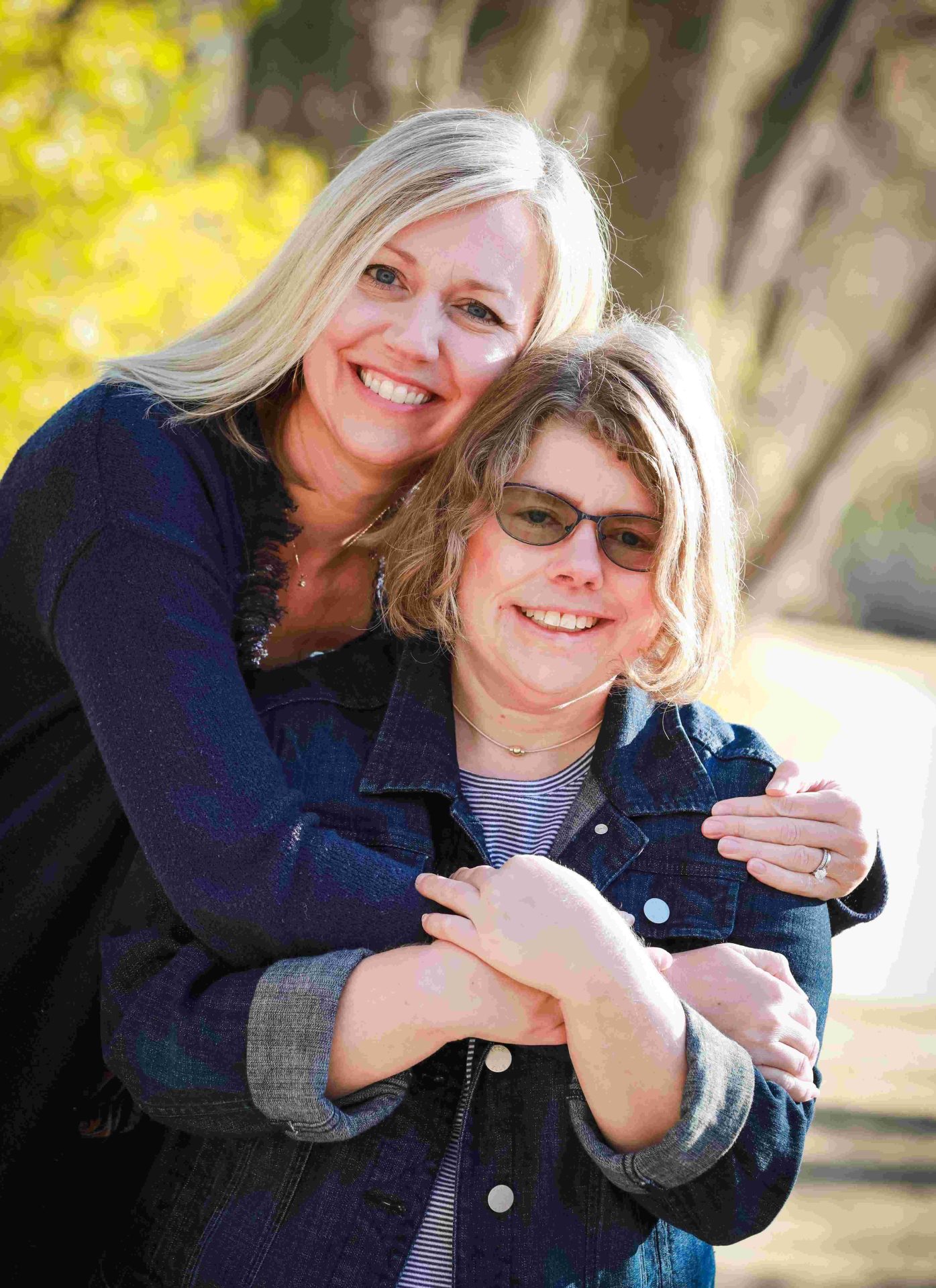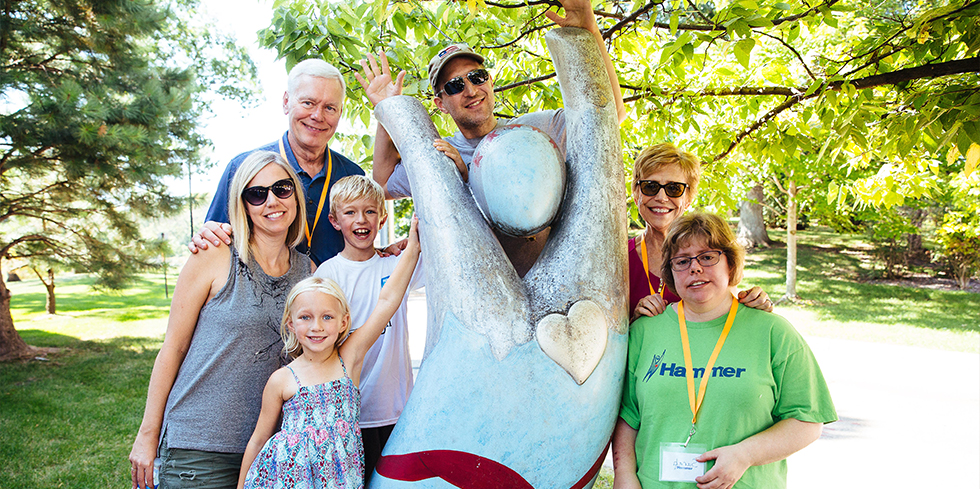Growing up, siblings of people with intellectual disabilities will watch their parents care for all aspects of their brother or sister’s life, even during young adulthood. As they grow older, these siblings may wonder where they belong in terms of their involvement with caretaking and decision making as the parents usually continue to manage the bulk of responsibility. Often, it’s not until the parents are aging that adult siblings will begin to interact more with service providers.

Kristen with her sister, Sarah, who is supported by Hammer & NER
Every sibling’s experience, every family’s experience, is different. Some embrace a caretaker role from an early age. Some are living their own life as their parents have traditionally provided the majority of care or decision making. However, as the parents age, siblings may not be prepared to step into the decision-making role. Access to resources is so important so that there are plans in place for a trust, where the loved one will live, and the level of support that will be needed.
How have changing expectations of people with disabilities impacted families?
Today versus 30 years ago, the promotion of self-advocacy has had a significant impact on families. People with intellectual disabilities want to live a life like other people. This can be scary for some families. We want to keep our family members safe. It can be disconcerting: Parents and/or siblings may be thinking one thing, but their loved one wants a different kind of life. The concepts of self-determination are here and aren’t’ going away. What tools are available to help families?
Talking to other families and sharing lived experiences is a good way to move forward with difficult conversations. Having some flexibility and an ongoing dialogue is also important. How does the family emotionally relate to one another? Family cultures differ. Sometimes siblings drift apart. The ultimate goal is making sure people with disabilities are safe regardless of their family situation.
Preparing for the transition of care
As siblings grow older, families don’t always talk about the loved one’s future care. Families should start talking about it early on and getting organized. Normalize how it will happen, make talking about it something routine. If your loved one is already being supported at Hammer & NER, it’s important for the siblings to become more involved in conversations with staff and become connected. It’s important to do this before you reach the point where you have to take care of your sibling. Getting the conversation going earlier and more often is important.
Families change over time, too. One sibling may not be in a position to care for a person with a disability; knowing that sooner is better so you can plan for different contingencies. Siblings shouldn’t be looked at as an automatic caregiving resource: Realize your own limitations.
Support for siblings and families
Learning how to navigate disability services, financial planning, and other relevant topics is crucial. The Sibling Leadership Network can be a helpful resource on a variety of topics including future planning and offers a variety of webinars and toolkits. The Arc also has a “Center for Future Planning” resource to support families. Check out the Minnesota Developmental Disabilities Council for additional information and education resources.
This is Part III of a series on Sibling Advocacy. You can read Part I here and Part II here
(Banner photo: The Amundson family)


Recent Comments